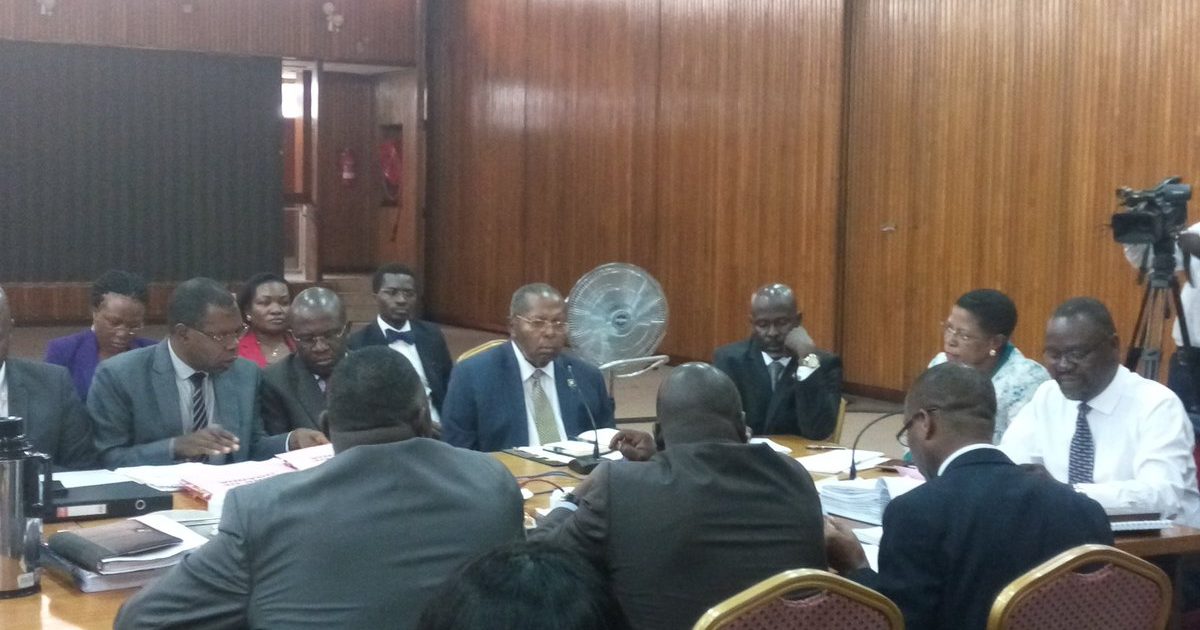A new audit report has unearthed how the Presidency is blowing up billions of shillings in unaccounted-for, confidential expenditures.
It also shows how the Interior ministry has operated secret accounts, contrary to the law, through which over Sh8 billion has been siphoned off since Jubilee rode to power in 2013.
Auditor General Edward Ouko reveals that in the 2015/2016 financial year, the Presidency spent Sh1,106,009,855 in secret expenditures, slightly higher than the Sh937million and Sh685 million incurred in the previous two financial years, respectively.
The Presidency brings together the executive offices of President Uhuru Kenyatta and Deputy President William Ruto.
Overall, the explosive report indicates that the Jubilee administration cannot account for Sh40.2 billion in the 2015/2016 financial year.
The report indicates that the government has over Sh20.5 billion in pending bills, signalling the troubles that government suppliers could be going through.
The Interior ministry operated a mystery account — No.1109896077 at KCB, Moi Avenue Branch — though which it transacted over Sh8.7 billion without the authority of the National Treasury as required by law.
Curiously, the powerful ministry does not maintain a cashbook, bank reconciliations and related payment records in support of the numerous cash withdrawals and deposits.
Ouko has accused the ministry of deliberately concealing bank balances of the mystery account to the auditors.
The Auditor General singles out Sh12.7 billion that the ministry wired out from the account into four separate deposit and investment accounts.
These accounts are: Call Deposit at INSTB, Fixed Deposit at INSTB, Euro Call Deposit and USD Call Deposit Accounts.
However, Ouko protests that the moves were made without prior approval by the Cabinet based on recommendations from the National Treasury.
“In addition, repayments, interest and proceeds received back to the account are Sh4,211,839,878, resulting in unaccounted-for balance of Sh8,476,957,081,” the report states.
The report also puts the immediate former Director of Criminal Investigations Ndegwa Muhoro on the spot for an unexplained loss of Sh193 million cash from Police Clearance Certificates.
Ouko has also confirmed most details of the infamous Afya House scandal that rocked Uhuru's administration in 2016 that was estimated at Sh5 billion.
The report confirms that the Ministry of Health paid Sh800 million for the procurement of some 100 portable clinics before they were installed, commissioned and handed over.
The auditor has termed the move a flagrant violation of the contractual agreement.
It further exposes a syndicate in which some 2,213 computers for public secondary schools valued at Sh153.8 million cannot be accounted for.
According to the 2015/16 audit report, the statement of receipts and payments for the year 2015/16 showed that the ministry bought 3,320 computers for public secondary schools at a cost of Sh230.7 million.
However, auditors found out that the list of the serialised computers provided reflected 921,107 computers, resulting in the variance.
A SLUSH FUND
The latest report rekindles memories of the suspicious transfer of Sh2.9 billion from security accounts during the 2013 transition period that saw former Interior PS Mutea Iringo kicked out of government.
In an indictment of President Uhuru Kenyatta's administration, Ouko concludes that the State's explanation that such expenditure “cannot be made public” is unsatisfactory.
The auditor says that the audit “revealed weak controls over confidential expenditure as payment vouchers are not supported with necessary documents that can be subjected to audit tests, to enable the Auditor-General to confirm that the expenditure was incurred for the intended purposes and, therefore, lawful and effective.”
Confidential expenditures are disbursements made by the government especially on security matters that should not be made public.
However, the High Court last month dealt a staggering blow to Jubilee, when it sealed the loophole by giving Ouko's office sweeping audit powers to interrogate them.
Ouko has outright stated that there could have been huge cash withdrawals of taxpayers’ money disguised as confidential expenditures.
For instance, Sh165,587,200 was allegedly spent on the purchase of motor vehicles, but the amount was curiously not posted on the IFMIS Ledger.
“Further, verification of IFMIS Ledger shows that the payments were not posted in the IFMIS Ledger, an indication that they could have been unexplained cash withdrawals,” the report states.
Ouko also says that in the last financial year, some suspicious Sh105 million was spent from the General Suspense Account without approval as required by law.
Further, Ouko exposed the purchase of non-existent goods by various State Houses and Lodges worth Sh22,324,851 that were allegedly received in Nairobi for delivery to various stations across the country.
“However, a verification in various State Houses and Lodges undertaken during January and February 2017 revealed that these goods were never received and there were no documents [on] record maintained in the field to support receipt,” the report states.
The auditor reveals that the State department of Water irregularly procured a luxury vehicle for CS Eugene Wamalwa against government regulations at a cost of Sh7 million, contrary to Office of the President Circular Ref No. CAB/56/2A dated 7 July 2011, which prescribes a limit of Sh2 million.
Ouko also reveals that taxpayers lost Sh62.2 million in interest claims for delayed payments to two contractors.
Taxpayers forked out Sh34.3 million to a local firm contracted to renovate the Senate chamber and parliamentary offices while a further Sh27.8 million was paid to a foreign company that is constructing a multi-storey office block.




















 Looya Mpanga (owookubiri ku kkono) n'abakungu ba Bbanka Enkulu okuli Margaret Kasule.
Looya Mpanga (owookubiri ku kkono) n'abakungu ba Bbanka Enkulu okuli Margaret Kasule. Omulamuzi Wangutsi
Omulamuzi Wangutsi






















